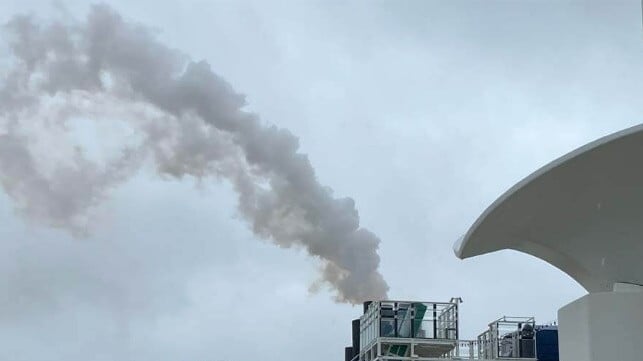Report: Scrubber Wash Damages Baltic as Shipowners Realize Profits with HFO

A new report is adding to the long-running debate over the impact of exhaust scrubbers and the potential for more restrictive legislation. A new study from Chalmers University of Technology, Sweden, alleges extensive financial costs from the release of scrubber wash which contains toxins while they calculate that many of the ships that installed the technology have achieved payback on the investment and now benefit from the use of less expensive heavy fuel oil (HFO).
“If the scrubbers had not existed, no ships today would have been allowed to run on this dirty residual fuel,” said Chalmers doctoral student Anna Lunde Hermansson, who is one of the authors of the new study, published in Nature Sustainability. “That is why the scrubber issue is highly relevant to push the shipping industry towards less negative environmental impact."
In a previous study, the Chalmers researchers contended that more than 200 million cubic meters of environmentally hazardous scrubber water is discharged into the Baltic Sea annually. They assert that scrubber discharge water accounts for up to nine percent of the total emissions of certain carcinogenic polycyclic aromatic hydrocarbons (PAHs) into the Baltic Sea.
In the new study, the Chalmers researchers calculated both the external costs of scrubber water discharge and the financial balance sheets of over 3,800 vessels that invested in the scrubber technology. They point to the rapid adoption of scrubbers as the EU moved to launch its strict Emission Control Areas and lowered permissible levels of sulfur and other gas emissions. The researchers reported that just 178 ships had scrubbers in 2018 while they believe the figure is at least four times that level.
They are attributing a socio-economic cost of more than €680 million ($730 million) related to the pollution in the Baltic caused by the release of scrubber discharge from open-loop systems between 2014 and 2022. They further assert that it is an underestimate highlighting it does not include the direct costs of oil spill cleanups in the marine environment. As an example, they cite the oil leak off Sweden in October 2023 associated with the grounding of the ferry Marco Polo.
Considering the impact on the shipping industry they calculate that the investment made by shipowners to install open-loop scrubber systems was repaid within five years. Now they assert shipowners are rewarded by using lower-cost heavy fuel. The research asserts that by the end of 2022, the 3,800 vessels that installed scrubbers were generating a total surplus of €4.7 billion ($5 billion) by having recouped scrubber installation costs and continuing to burn HFO on their vessels.
The researchers highlight the growing debate over scrubber regulation including the efforts at the International Maritime Organization. They cite the recently announced ban by Denmark on scrubber discharge within 12 nautical miles as well as efforts in Germany, France, Portugal, Turkey, and China.
Calling for increased scrutiny and regulation, they assert that the research should inform the discussions and advance the understanding of the social and economic costs associated with the use of scrubbers.
